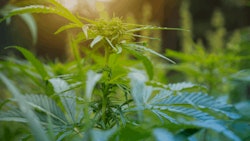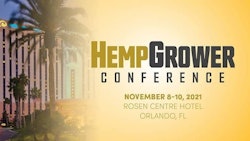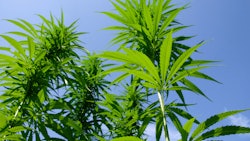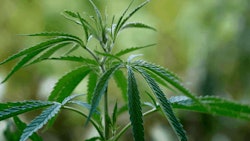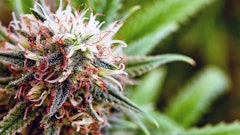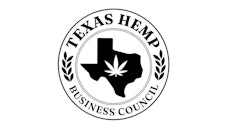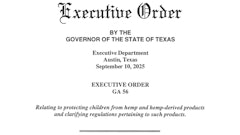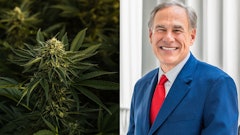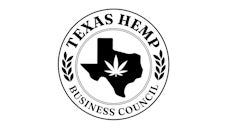
In fall 2020, Southeast Missouri State University (SEMO) introduced its Production and Use of Hemp course to provide students with the knowledge and skills needed to prosper in the evolving hemp industry.
Sven Svenson, Ph.D., a professor in the Department of Agriculture at SEMO, teaches the semester-length course. It is designed as an introductory course on hemp's various uses and its role in human history.
The course covers the basics of indoor and outdoor hemp cultivation, production, agroecology (the study of the relation of crops and the environment), interactions between cannabinoids and the human body, and the non-recreational use of hemp for food, fiber, fuel, phytoremediation, and pharmacology, Svenson says.
The university is offering the course to students for a second time in fall 2021. Since introduced, there has been high interest from students in the class, which has led Svenson to propose a Bachelor of Science Degree in Agribusiness: Cannabis Science, currently under review at various administration levels at SEMO, he says.
Here, Svenson shares more information about the course, education gaps in the industry, the proposed major and other inputs on the hemp industry.
Andriana Ruscitto (AR): Why did you start teaching a hemp production class at Southeast Missouri State University?
.png?auto=format%2Ccompress&fit=max&q=70&w=400)
Sven Svenson (SS): In 2014, when the farm bill gave us the ability to start looking at this crop, at that time, the students began asking me for a course. It took nearly three years or more to get the university to approve it. I also got it approved as one of our general education core courses as well, which took me a little extra time to get through that process, but it was by student request. So, this was something that they wanted. It is not heavy on the concepts of recreational use. It covers just about every other piece but the recreational side, as recreational use is not legal in Missouri yet. [Editor’s note: Missouri residents may only use CBD to treat “intractable epilepsy” and need to be licensed by the state, according to the Missouri Department of Health & Senior Services.] We still cover cannabinoid physiology, and we talk about CBD and some of the other products that are out there, but overall, the class is student-driven, and that's what is relevant.
AR: What should farmers' main takeaways be from the course?
SS: The course is targeted toward an introduction to students. The students in the class who aren't farmers are looking for how they can work hemp into their system as a rotational crop. We are in a farm belt that grows a lot of corn, soybeans, rice, cotton and more, which surrounds our community. So, the growers here are just seeing this as one more thing to put in the rotation, and perhaps their biggest concern is simply who's going to buy this. That is my most considerable counsel to them: I would never grow a crop until I know who will buy it, nor would I sell a seed until then. So, that is their biggest concern, and that is what they are trying to figure out. So, finding buyers and processors seems to be the biggest issue.
AR: Why do you think it's essential that the university teaches students about hemp production?
SS: We are in Missouri's central agricultural belt, where probably about 40% of Missouri's agriculture is in just a few counties here in the Southeast corner where we're located. So that's probably why as a lesser-known school, we have an extensive agriculture department because of the nearby agriculture. I see the crop as valuable, not just as a rotational crop in their agricultural farming operations. The students like the storyline where hemp is linked towards sustainability, where products can become substitutes for things like plastics, or how we can lead to things like biodegradable plastics. We also have many students in our horticulture program where their interest is in beginner agriculture, where we can use what we do in agriculture to improve the environment or repair the damage people have done to the environment. The students recognize this, and that the hemp plant can be very useful in that type of targeted use.
AR: What do you think are the most significant education gaps among hemp producers in the hemp industry?
SS: One of the things that the students described the class as is making the step from what was essentially an illegal crop hiding in the shadows and bringing it to the professional world. So, there's this step of, how do you help improve the professionalization of the hemp crop side? The other piece to that is the business side, which helps students deal with issues like banking, finance, crop budgets, etc. When you've got a crop where the general data information is not available, or it's just now becoming available, how do you deal with those sorts of situations? For example, when you're doing corn and soybeans, there's data everywhere. So, it's pretty easy to find out the information needed to go to a loan officer that might consider giving you a farm loan, which is very hard to do if hemp is the only thing you're growing. Banks look at hemp as a huge risk crop, and farmers can't give them hard numbers to speculate on. So that is where we spend a lot of time talking about those sorts of issues.
AR: Although hemp is not currently grown on the campus greenhouse, why do you think it's essential for students to engage in hemp cultivation while learning about it eventually? Do you feel that the school will ever grow hemp on campus?
SS: I think the university eventually will. The school is likely responding to legal issues to ensure that they don't have a liability that blindsides them, which I can understand. I don't like teaching without being able to be hands-on. So, whether it's in our horticulture program or any of our department's agriculture programs, we are very hands-on. We make sure our students can physically do the things that we teach them. Our greenhouse is a for-profit daily operation, and it's just the nature of what we do. Why would we introduce a plant if we can't even grow the plant? So, the permission to do that is working hand-in-hand with the development of the program itself. It's essential to get hands-on experience, even if it's minor.
AR: What types of jobs or roles can the class prepare students for in the hemp industry?
SS: One of the things that the class explores are all the career tracks available in the cannabis industry, and students get fascinated by those and start to dream bigger. From just teaching the class one time, it led to a group of students going to the university and telling me they need to develop a major.
AR: What is the proposed major, and what does it entail?
SS: The new major would be a hybridization of agribusiness, horticulture and cannabis science, where students will have business training and horticulture training. They'll be able to handle things like hydroponics, pest control, fertilization systems, irrigation systems, all that sort of things. We would also be partnering up with our chemistry department, so students will get a run-through of not just the standard chemistry classes but the organic chemistry classes. So, they'll have the familiarity with all of the equipment that they need to use that would be on the chemical analysis side, and they'll understand organic chemistry. So, they would essentially be three-way trained: trained as business folks, trained as horticulture managers, and prepared to handle any of the industry's chemistry side. When I looked at that, I thought that was a perfect fit right now for what the cannabis industry needs, and I think they're going to be very helpful graduates when we get that major in place.
AR: What does the future look like for the subject at Southeast Missouri State University?
SS: We're in a very conservative belt of the country, right in the middle of the Heartland area, so the university has to proceed carefully. I don't mind being careful as it helps you make fewer mistakes. So, we will move slower than I want it to go and probably slower than our students wanted to go. But I think that means, in the end, we're going to produce a better product for the students and produce better graduates because of that.
So, will it continue to expand? Yes, it has to. We are in an agricultural heartbeat here as far as where we're physically located. There are many corns, soybeans, rice, cotton, horticulture crops, and more; It's all here. Because hemp is going to become slowly part of the system and a part of what we do, the farmers here will want to include it. There are many questions and frustration about that because higher education is not moving fast enough to support the industry. And just in terms of information generation and educational programs, we can't do it quickly enough.










